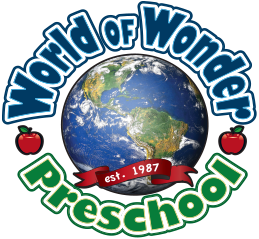Curriculum
Nursery, Pre-K and Transitional Curriculums
Each curriculum is flexible to handle different situations. Our curriculums are tools that help smooth the transition of theory into practice. All levels reflect the Pre-School Frameworks set forth by the Mass. Department of Education. Curriculum and progress reports are based on the Eight Multiple Intelligences.
All activities are planned to motivate and not frustrate children. Children have a variety of learning styles combined in a unique blend. Multiple Intelligence Techniques enable the total capacity of each child to be developed through the use of various teaching methods. The curriculum leaves room for both student and teacher creativity. The center also has a fenced-in outdoor playground and a library area so students may borrow books. tapes and DVD’s. Throughout the school year, samples of each student’s work will be placed in his or her portfolio to be taken home at the end of the school year.
Brief Summary
To better prepare Pre-K and Transition students for a full-day kindergarten experience, these levels offer extended day classes which continues the curriculum and a brief lunch period. Incorporated in all levels is “Teaching Empathy” (No Bullying), “Keeping Safe” (Beware of Strangers) and “Good Nutrition” (Healthy Eating)!
Nursery (3 hours)
Pre-Kindergarten (3 or 4 hours)
The development of the fine motor skills are introduced through the use of painting, collages, letter and number writing and simple art projects involving simple pasting and cutting. Story time and simple direction games are fun ways to practice listening skills and increase attention span. Music is incorporated throughout most daily activities as an enjoyable learning tool. Sorting, patterns and sequencing encourage basic math concepts. Using one’s imagination through creative drama and recalling simple facts enhance comprehension. Daily assigned classroom jobs help to develop a sense of pride and responsibility. Ultimately, our goal is to foster confidence and self-esteem in preparation for Kindergarten.
A computer is available in the classroom to supplement curriculum.
Transition (3 and 4 hours)
At this level, self-motivation and independent learning is our goal. Most students are capable of more detail, letter and number penmanship, math development and readiness skills in language.
Correct pencil grip and left to right sequence is stressed in all activities to insure proper writing of numbers and upper and lower case alphabet letters. One-to-one correspondence, cardinal and ordinal numbers, measurement and time concepts will be introduced with the use of charts, scales and graphs. The students will be introduced to concepts of science, animal life and social studies through hands-on experimentation, life skills and resources. Art projects incorporate units of study and classroom themes. Listening skills enable students to become active, cooper-active members of the classroom. Special attention will be focused on early childhood readiness skills to challenge and encourage all students to complete tasks and to be successful in school.
All three levels of curriculum are interrelated and support one another.
Error: No posts found.
Make sure this account has posts available on instagram.com.
Various Learning Styles:
Verbal/Linguistic
All aspects of formal language (poetry, storytelling, oral conversations)
Logical/Mathematical
Clear thought process (problem solving, classifying, sequencing, puzzles)
Visual/Spatial
Visual perception and forming images in the mind (drawing, painting, Play-Doh®)
Bodily/Kinesthetic
Expressing oneself and learning through physical activities (gross motor skills, blockbuilding, creative movement)
Musical
Understanding through rhythmic movements (dancing, circle games, singing, instruments)
Interpersonal
Knowing how to communicate cooperatively with other people (large groups, role-playing, drama)
Intrapersonal
Inward thoughts and emotions (one-on-one, small group, independent and imaginative activities)
Naturalist
Observing and wondering about natural environment (simple science experiments, nature walks, planting, collecting objects)




